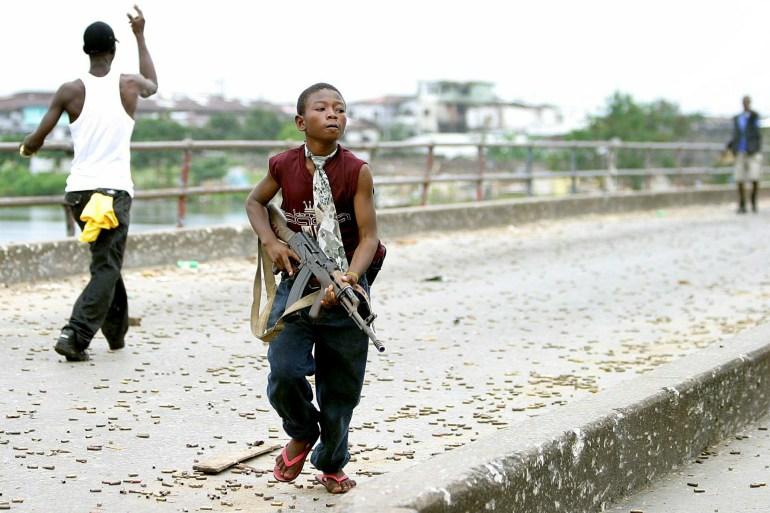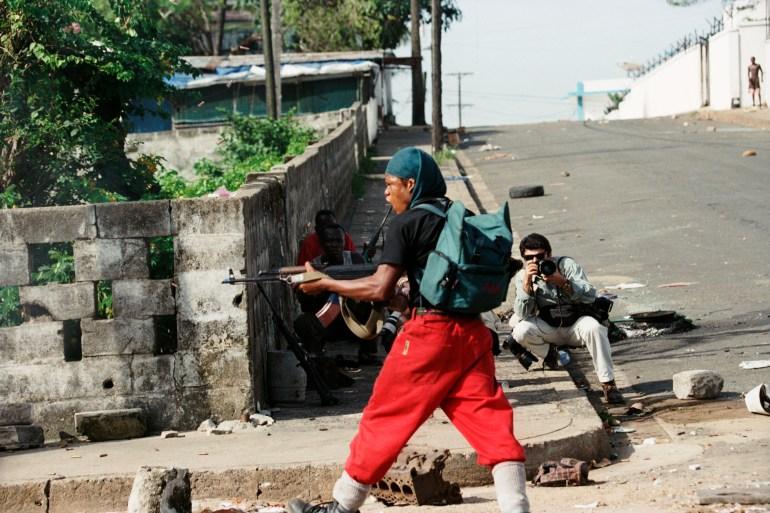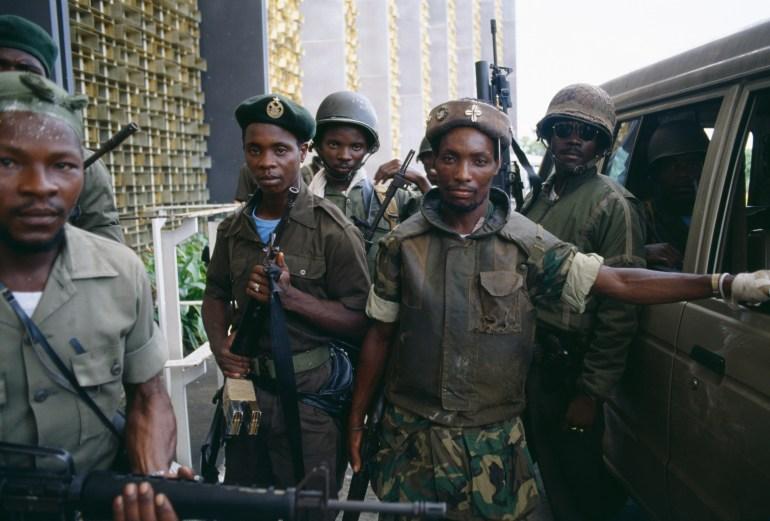Source: ALJAZEERA
ALJAZEERA MEDIA NETWORK

President Joseph Boakai pledges to establish a war crimes court, seeking justice decades after Liberia's civil wars.
Monrovia, Liberia – Rufus Katee, 60, vividly recalls Liberia’s civil wars.
During July 1990, at the age of 26, Katee fled the violence in Monrovia by seeking refuge in St Peter’s Lutheran Church.
“Many civilians took refuge in the church, but it turned into a nightmare,” Katee recounted.
“Soldiers invaded the church at night and began firing. People fell over me as they were shot, shielding me from the bullets. This is how I survived,” he shared with Al Jazeera.
Katee sustained a hip injury that continues to cause him pain to this day.
An estimated 600 people died that night, with many survivors suffering long-term physical and mental trauma.
This was just one of many atrocities during Liberia’s civil conflicts from 1989 to 2003, resulting in a death toll of 250,000 people.

The violence featured widespread atrocities, including rape, mutilation, and torture, often committed by rebels and militias, including child soldiers. Despite this, no one has been prosecuted for these crimes.
 Liberia civil war
Liberia civil war
Last month, President Joseph Boakai signed an executive order creating the office of a war crimes court.
The move has been welcomed by many who feel it is long overdue, although some fear it could reignite past tensions.
Experts suggest that political hesitation has delayed justice, with former war participants now holding significant power.
The post-war interim government included representatives from various warring factions, complicating efforts to prosecute those involved.
Every post-war president has had to form alliances with influential figures who participated in the wars, further hindering prosecution efforts.
“Liberia’s delay in addressing war crimes stems from a lack of political will and the complexities of power-sharing,” explained Aaron Weah, a doctoral candidate specializing in transitional justice.
The 2003 peace agreement divided political power among warring factions, making it difficult to pursue justice.
“The 2003 peace accord allowed war actors to maintain power, preventing them from implementing recommendations from the 2009 TRC (Truth and Reconciliation Commission),” Weah added.

Conmany Wesseh, a key figure in the 2003 peace negotiations, recalled the contentious discussions.
“Progress was stalled until we agreed to establish a truth and reconciliation commission instead of a war crimes court, which facilitated the signing of the peace accord,” he mentioned.
Wesseh emphasized that the compromises made allowed Liberia to maintain peace for 21 years.
 Liberian soldiers
Liberian soldiers
In 2005, the Transitional Legislature established the TRC of Liberia to investigate war-related human rights abuses and promote national reconciliation.
The TRC’s 2009 report recommended creating an Extraordinary Criminal Court for Liberia to address major human rights violations and called for reparations and the disbarring of certain individuals from public office.
Despite campaigns and promises, the court was never established. Instead, Liberia implemented the National Palava Hut programme, offering a space for community reconciliation.
Palava huts do not function as courts and focus on lesser crimes like arson and theft. Many victims have sought justice abroad in Europe and the U.S., where a few former war participants have been prosecuted.

In April, Liberia’s Legislature passed a resolution urging the president to establish courts for war and economic crimes. The resolution even garnered support from former rebels.
President Boakai responded in May with an executive order to establish the Office of War Crimes and Economic Crimes Court, tasked with laying the groundwork for a Special War Crimes Court and a National Anti-Corruption Court.
This marks Liberia’s most tangible step towards domestic prosecution of war criminals, celebrated by victims, the international community, and civil society.
Peterson Sonyah, head of the Liberia Massacre Survivors Association, survived the 1990 Lutheran church massacre. He supports the establishment of the court.
“The church massacre was horrific. I lost seven family members. We need the court to address these crimes,” Sonyah said. He has campaigned for the court since the TRC recommendations.
Hassan Bility, executive director of the Global Justice and Research Project, sees the executive order as a positive step toward justice.
However, not everyone agrees. Critics worry about the security risks of prosecuting powerful individuals and argue that resources could be better spent improving Liberians’ lives.
Wesseh emphasized the importance of maintaining peace: “We must not reverse our peace gains with a war crimes court. Instead, we should focus on functional courts and hospitals and ensuring employment.”

Prince Johnson, a former war leader and now senator, has criticized the TRC report, calling for a UN-established court instead.
Concerns also include funding challenges for the court, as Liberia would likely need international support due to its economic constraints. Additionally, gathering evidence 21 years after the conflict poses difficulties.
Despite these challenges, survivors like Katee remain determined.
“We have pursued this war crimes court for years. It needs to happen soon while survivors can still testify,” Katee said.
“If we all die, who will testify? Let the court come and deliver hard justice.”
Your email address will not be published. Required fields are marked *